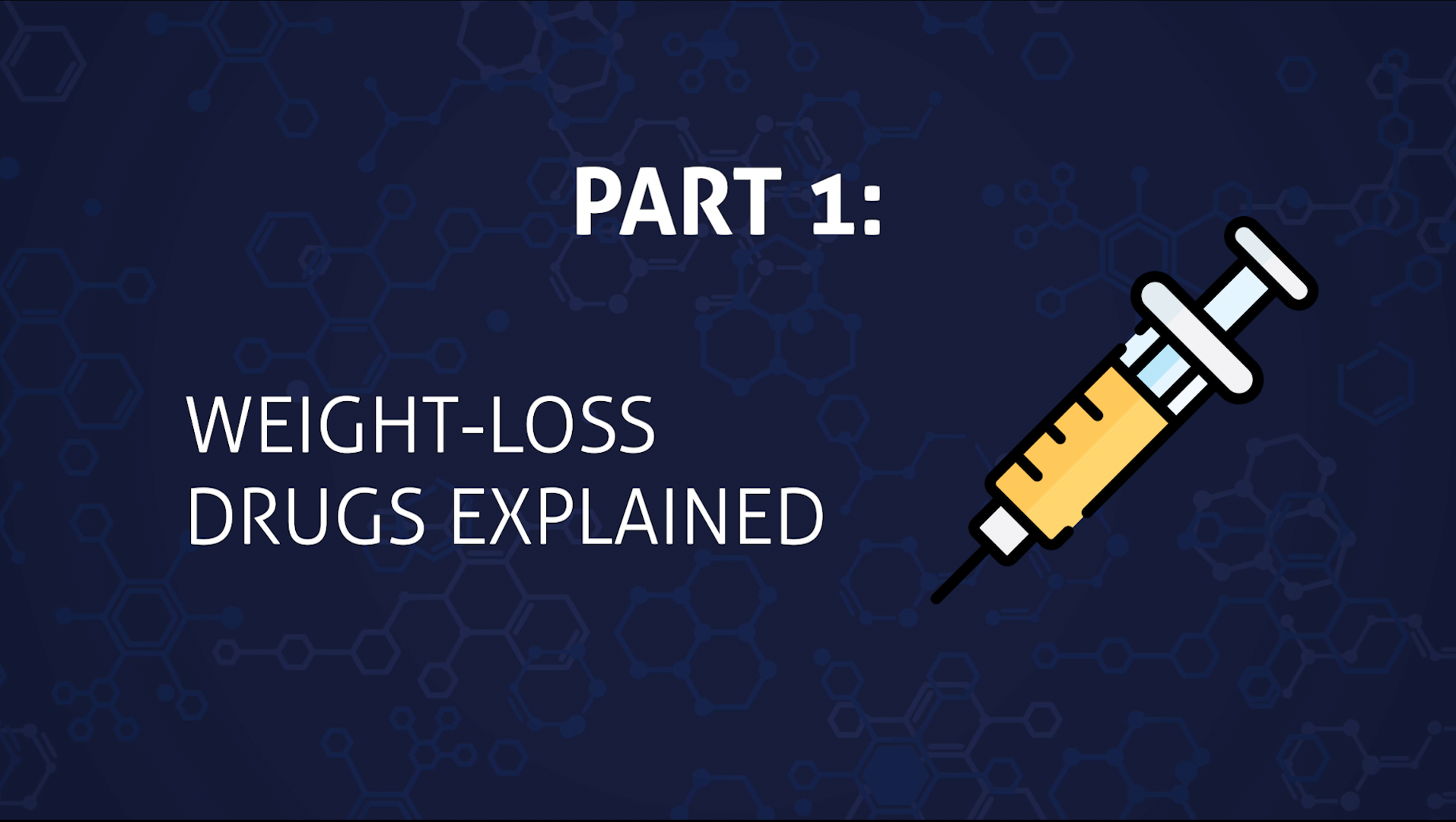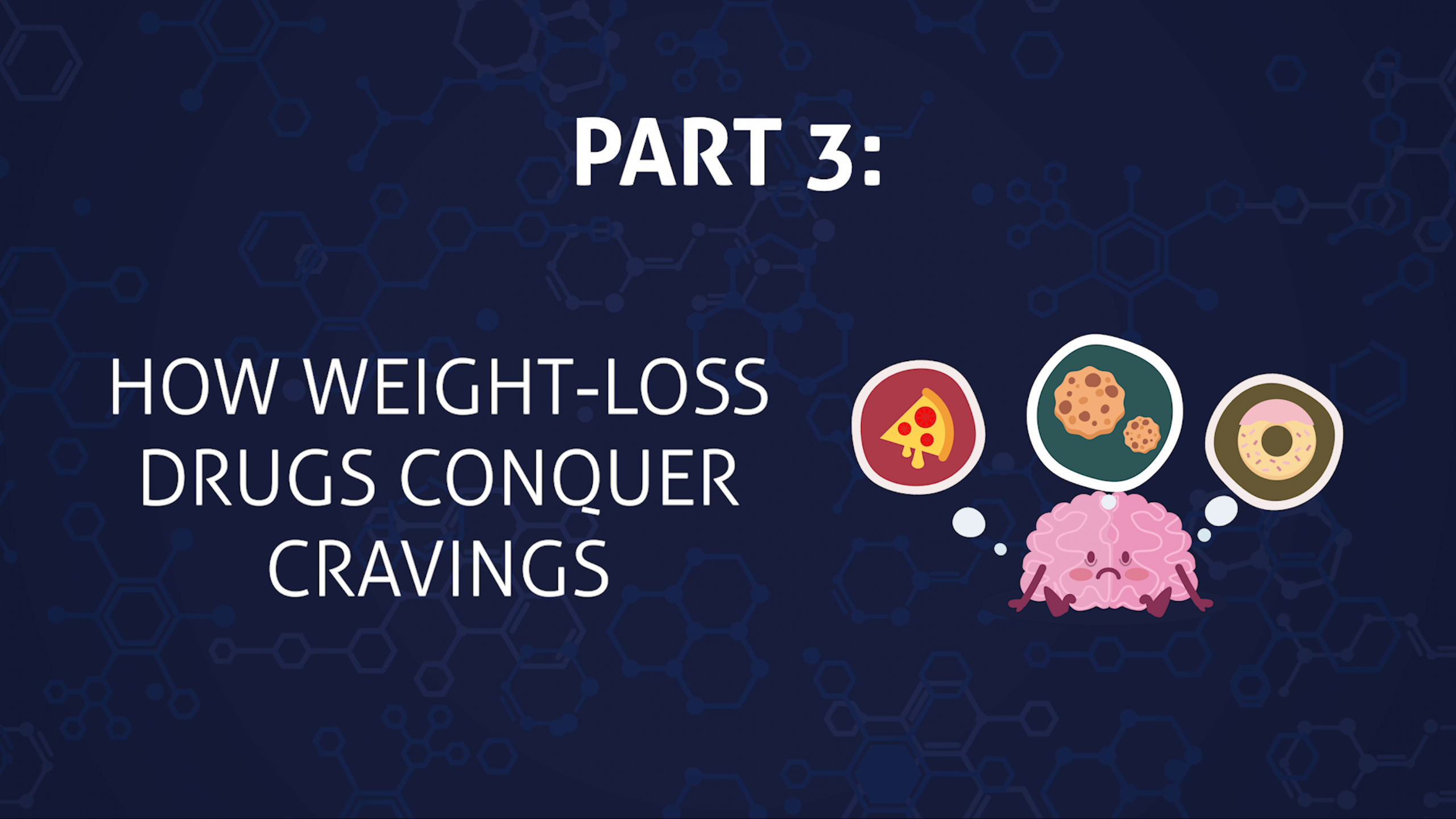How Weight-Loss Drugs Conquer Hunger
Video 2
How Weight-Loss Drugs Conquer Hunger
Video 2
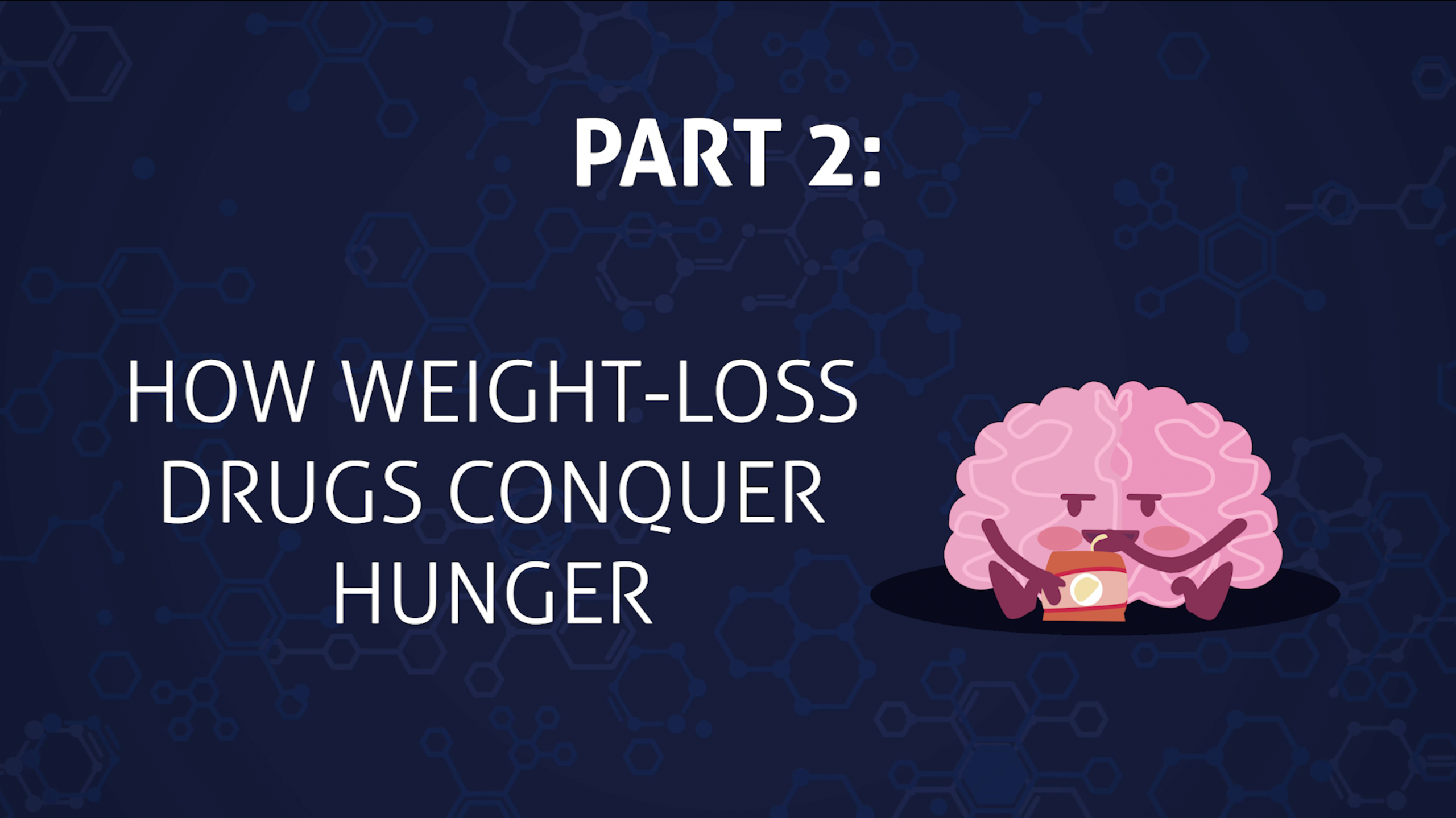
Succeed Long Term Without Weight-Loss Drugs
Video 4: Coming Soon
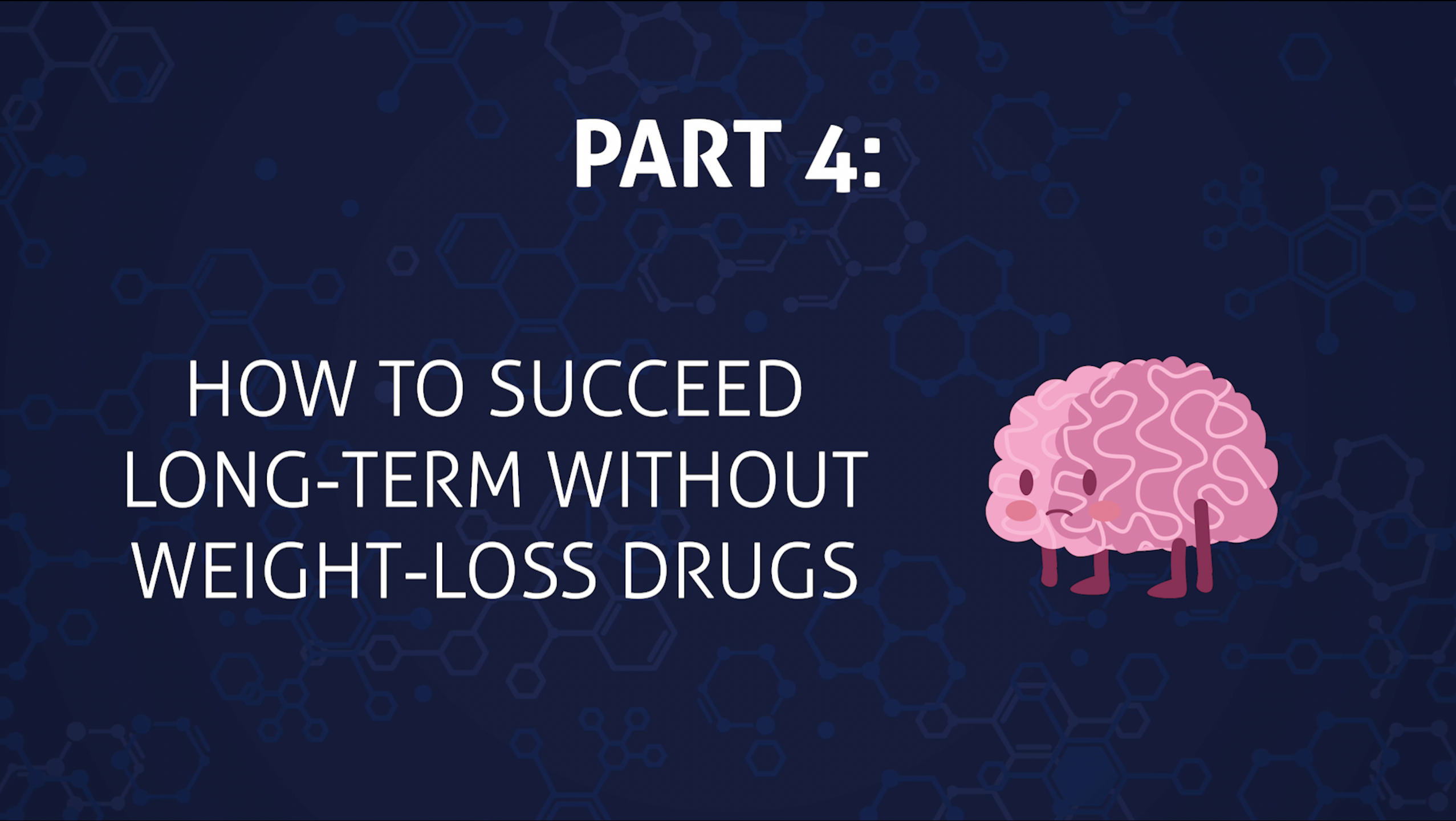
Your
Bright
Transformation
Video 5: Coming Soon
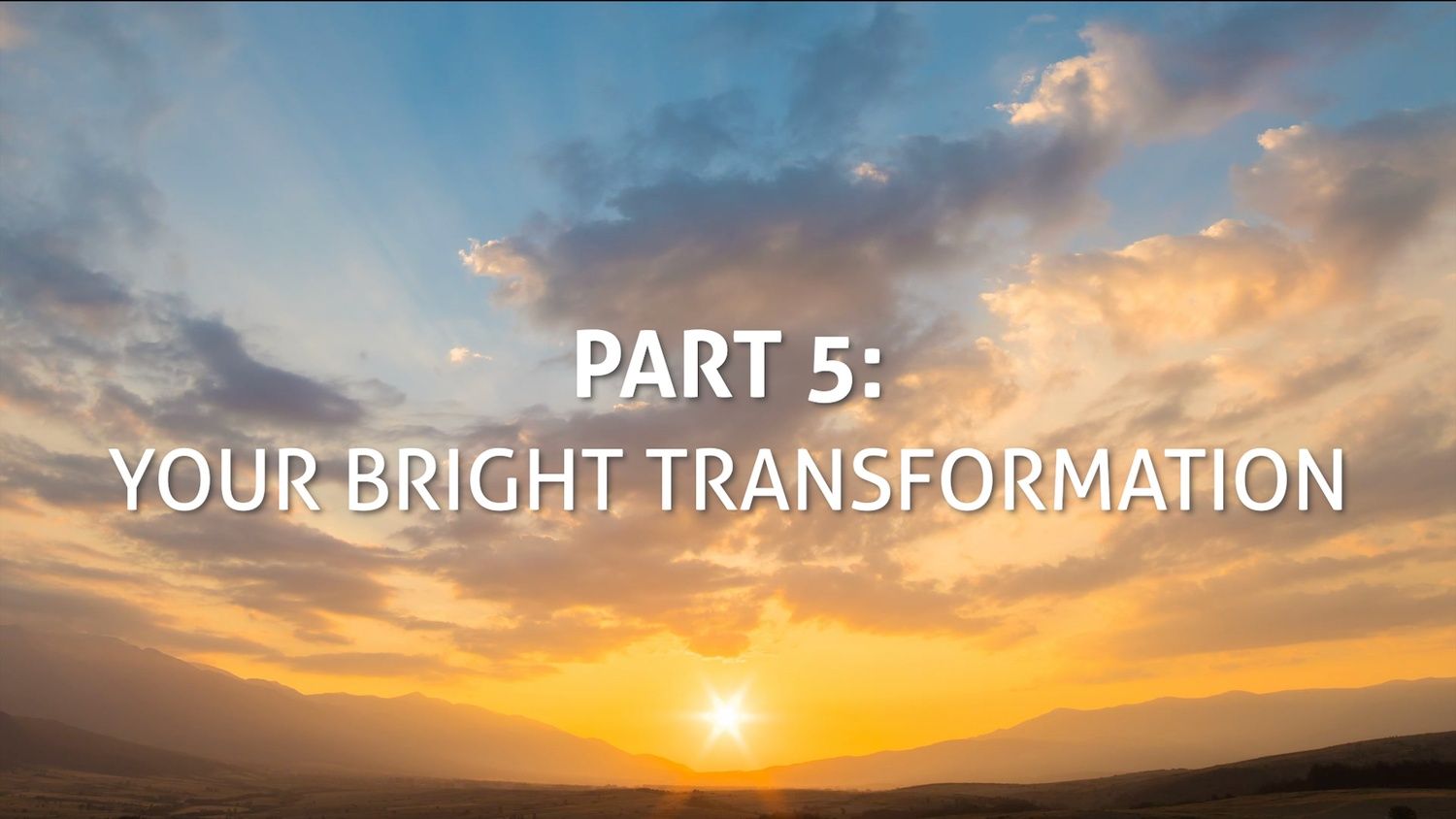
Transcript
Hey there. Welcome back to our 4-Part Video Series on how to get weight-loss drug results without the drugs. I'm Dr. Susan Peirce Thompson. I'm a professor of brain and cognitive sciences at the University of Rochester, and about 20 years ago, I lost 60 pounds. That was 34% of my body weight, and I've been keeping that off ever since. Recently I published a review article that shows that there is one and only one scientifically validated way to get the same amount of sustained weight loss as weight-loss drugs from a behavioral or natural intervention. That's what we're talking about in this video series. This is video 2, and it stands alone. You can watch this video whether you've seen video 1, or not. You'll see the link to video one with a little thumbnail picture on this very page. After this video, you can go ahead and click on that.
In video 1, we talked about what these weight-loss drugs are, how they work, and the main ways that they achieve their remarkable results. They do it by suppressing hunger, suppressing cravings, and handling the Willpower Gap™. That's what we're going to be covering now in these next three videos. But before we get started, I just want to say if you left one of the comments below, video one, thank you so much. My team and I have been reading them. They're super fun to watch. Thank you for your questions. We've been answering them as fast as we can. It's just great how engaged you are. So, thanks for that. In this video, we're going to dive into the topic of hunger and appetite and how to suppress it naturally without a pharmacological solution.
Hunger, it's a real issue. The thing is that typically when people lose a significant amount of weight, their hunger goes up. That's problematic, right? Because it's hard to live with a large amount of hunger over the long term. You can kind of do it for a while, but long term it's not that doable. You've got to find a way to get your hunger to come down as you're losing weight, and weight-loss drugs do that by suppressing your appetite and your hunger pharmacologically. But I published a study in “Current Developments in Nutrition” in 2020 showing that with 1,208 people over eight weeks, with the way that I taught them to eat, their hunger levels went down, down, down, down consistently until they were at very low levels at the end of the eight weeks. So, how does this work?
In order to understand how to get these results naturally, you've got to understand how hunger works in the brain, how it's regulated by the brain. Hunger is under tight control of a part of the brain called the hypothalamus, and it's got a sort of thermostat for hunger. Things like blood sugar levels and amino acid levels, they're all under homeostatic control, meaning that when they drop too low, the brain is going to tweak some dials to make sure we eat more, to bring them up when they get too high, the brain is going to tweak some dials to make sure that we don't eat for a little while to bring them back within a range. It's kind of like how temperature is controlled in a house. If it gets too hot in the house, then the thermostat works to tweak some dials to bring the temperature down by turning on the air conditioning. If it gets too cold, the thermostat tweaks some dials and kicks on the heater to bring the temperature up. Everything's supposed to stay within a pretty narrow band. Interestingly, our adipose tissue is also under this kind of regulatory control. Our body fatness is also supposed to stay within a nice narrow band. Now, this is all regulated by the hypothalamus through our endocrine system. This is our hormones. So, through the pituitary gland and the release of hormones, maybe by the brain, maybe by other organs in the body, hormones are regulating all of these factors. How much we're eating, how much we're not eating, our temperature, all sorts of things. We're talking about hormones like insulin, neuropeptide y, GLP-1. That's the main hormone in these weight-loss drugs. And also GIP that's also in some of the weight-loss drugs. CCK, which is cholecystokinin, ghrelin, peptide yy, and the mac daddy of them all, which is leptin. When everything is in balance, an organism stays naturally lean and healthy, and their brain and their hormones are making sure that they eat only in exactly as much as they need to eat to maintain their body fat stores at the right level, and to maintain enough fuel on board to do all the things they need to do to ensure their survival. They don't ever get fat. They don't ever eat too much for what their body needs.
What we're seeing now is that fat stores of human beings are getting out of balance. In fact, we're not experiencing the shutoff of our hunger mechanisms that's supposed to be happening. We're eating, let's say a full dinner, and then sometimes we still feel like we want to eat more. It might even be that our belly feels full technically, but our elbow still wants to bend our mouth, still wants to chew, our brain still wants more food. So, we go to the freezer and maybe get the container of ice cream and start to eat that in front of the tv. And maybe when the ice cream is gone, we go to the cupboard and get a bag of chips. This is what I call insatiable hunger. It's not actually satisfied by eating the way regular hunger would be. The hormonal mechanisms that shut off our desire to eat are not working.
It turns out that there's one hormone that's responsible for that. It's the feedback mechanism that's released by fat cells when they get a little bit plumper, that circles back to the brain to say, you've got enough fuel on board. It's time now to stop eating and to go use the fuel you've just consumed to go build a hut or kill a wildebeest or find a mate or do something productive with all that energy. That hormone is called leptin. Here's a picture of a mouse that doesn't have the gene that makes leptin. This mouse will sit at the food trough and eat and eat and eat and become morbidly obese because it doesn't have leptin to tell it to stop eating.
We're not like that mouse. We have the gene that makes leptin. It's just not working anymore for us. So, why isn't our leptin doing its job and telling our brain to make us stop eating already? It's something called leptin resistance. It's that literally our brains can't see the leptin that's circulating in our blood in very large amounts actually, because our body fat stores have swelled and they're pumping out a lot of leptins saying, stop eating, stop eating, stop eating. The leptin is never making it to the brain. What's causing this leptin resistance? It turns out it's three things. It's primarily high insulin levels. It's also high inflammation and high triglycerides. So, hold that thought, because if you can get your insulin and your inflammation and your triglycerides to come down to the levels they're supposed to be at to healthy levels, then suddenly your leptin gets on board. Your body fat stores regulate, aah, and that insatiable hunger finally goes away.
Weight-loss drugs handle this a different way. They tried injecting people with leptin, oh, believe me, they tried in 1994 when leptin was discovered, pharmaceutical companies spent a lot of money trying to figure out how to get more leptin into people, but then they realized it wasn't working because the issue wasn't how much leptin we have. It was that the brain couldn't see it anyway, so it didn't help. They found this workaround and now they use this hormone called GLP-1. Now, they don't use actual GLP-1. They use a GLP-1 agonist or lookalike. That may be problematic because it's not a bioidentical hormone. It's not the actual one that your body's used to seeing. And when synthetic fake hormones break down, sometimes they kick off byproducts that aren't so good for you. We don't know if that's going to be a problem for people. This GLP-1 agonist, what it does is it suppresses appetite because that's part of the role of GLP-1in the body, and it's shutting down appetite so completely that people are just not wanting to eat hardly at all.
When you're not on a weight-loss drug and you've eaten a meal, GLP-1 goes up and it tells you to stop eating because you're full now and the meal should be over. But then GLP-1 levels go down pretty quickly thereafter with these weight-loss drugs, you get an injection once a week and your GLP-1 agonist levels stay high, high, high all week long. They're not going up with eating and coming back down again. We don't know if there's an issue with having so much GLP-1 activity happening 24/7/365 nonstop. That could be problematic. Maybe it's not. We're not sure what other things GLP-1 is involved in, but so they work very differently than our natural GLP-1 rhythms.
Note that some of the newer weight-loss drugs are not only using GLP-1, they're using some other hormones too, maybe GIP, and some even newer ones are using three hormones. That combination of hormones is important because the way to get an appetite suppressant effect, the way to get your hunger under control naturally is to use multiple hormones the way the body intended. It turns out that the specifics of what you eat and what you don't eat will be the magic formula because there are two foods in our diet right now that really, really block weight loss. They block weight loss by blocking leptin at the brain.
So, the first way to get your hormones back working in your favor is to get leptin on board. Again, this is the key hormone that suppresses hunger. If your brain can't see it, you're going to keep eating voraciously unless you're on one of these new weight-loss drugs. Leptin is being blocked by, again, high insulin, high triglycerides, high inflammation. The way to get those down fast, within a couple of weeks, is to stop eating sugar and flour.
Then second, the key to getting more GLP-1 naturally is all about what you do eat. Because there's scientific studies showing that when you eat more fiber, your gut releases GLP-1 naturally. Also, get this, when you chew your food a lot when you're masticating, that chewing effect releases GLP-1 as well. That's really interesting because these ultra-processed foods, these Frankenfoods that are in our food environment now, they're actually manufactured literally and deliberately to minimize the amount of chewing you have to do. They really inject chicken breasts now, for example, with stuff to make it so that with just two or three or four chews, you can swallow it right down. Whereas a whole natural chicken, breast, free range and so forth, might take 15, 20, 25 chews in order to feel like you're ready to swallow it. Snack foods that are made in factories and poured into a bag, forget about it, two chews, and you're swallowing already. So, if you're eating ultra-processed foods, you're not chewing your food much before you swallow. When you go to eating whole real foods with lots of vegetables, natural foods, you end up chewing many times more than you would if you were eating sugar and flour processed foods.
This approach to eating overall is called Bright Line Eating. Indeed, in just eight weeks on the Bright Line Eating Program, people experience their hunger levels going down, down, down steadily until they're low. They also experience a level of weight loss that is comparable to semaglutide drugs like Ozempic and Wegovy, but without taking any medication whatsoever. In fact, like I mentioned in the first video of this series, the results only look comparable for the first two years after that, people on weight-loss drugs start regaining some weight on average, while people who continue to do Bright Line Eating haven't regained their weight even all the way out to six years. That study was just published in the very prestigious journal, “Frontiers in Psychiatry.”
Now, the thought of not eating sugar and not eating flour might sound horrific to you, and don't you worry, I will be covering how it's not as bad as you probably think and actually how it can be tremendously freeing in later videos in this series. But right now, we've come to the end of video 2, and in video 3, we're going to be talking all about cravings, food cravings, sugar cravings, those specific cravings for specific foods that lead us to drive way out of town to get the food that we want, that have us opening the fridge and standing there wondering what's going to hit the spot. We're going to talk about how to make those cravings go away naturally and what cravings are in the brain, how they work, and how you can feel so empowered knowing how to get your cravings under control by the way you eat.
But for now, just do one quick thing for me if you would. Would you please scroll down and leave a comment? I'm just reading them so anxiously and excitedly. It's so sweet to hear your thoughts. Did you love it? Did you hate it? Did you have a question? Did you learn something that was interesting to you? I would love to hear from you, and I can't wait to see you in the next video.
Video Transcript
Hey there. Welcome back to our 4-Part Video Series on how to get weight-loss drug results without the drugs. I'm Dr. Susan Peirce Thompson. I'm a professor of brain and cognitive sciences at the University of Rochester, and about 20 years ago, I lost 60 pounds. That was 34% of my body weight, and I've been keeping that off ever since. Recently I published a review article that shows that there is one and only one scientifically validated way to get the same amount of sustained weight loss as weight-loss drugs from a behavioral or natural intervention. That's what we're talking about in this video series. This is video 2, and it stands alone. You can watch this video whether you've seen video 1, or not. You'll see the link to video one with a little thumbnail picture on this very page. After this video, you can go ahead and click on that.
In video 1, we talked about what these weight-loss drugs are, how they work, and the main ways that they achieve their remarkable results. They do it by suppressing hunger, suppressing cravings, and handling the Willpower Gap™. That's what we're going to be covering now in these next three videos. But before we get started, I just want to say if you left one of the comments below, video one, thank you so much. My team and I have been reading them. They're super fun to watch. Thank you for your questions. We've been answering them as fast as we can. It's just great how engaged you are. So, thanks for that. In this video, we're going to dive into the topic of hunger and appetite and how to suppress it naturally without a pharmacological solution.
Hunger, it's a real issue. The thing is that typically when people lose a significant amount of weight, their hunger goes up. That's problematic, right? Because it's hard to live with a large amount of hunger over the long term. You can kind of do it for a while, but long term it's not that doable. You've got to find a way to get your hunger to come down as you're losing weight, and weight-loss drugs do that by suppressing your appetite and your hunger pharmacologically. But I published a study in “Current Developments in Nutrition” in 2020 showing that with 1,208 people over eight weeks, with the way that I taught them to eat, their hunger levels went down, down, down, down consistently until they were at very low levels at the end of the eight weeks. So, how does this work?
In order to understand how to get these results naturally, you've got to understand how hunger works in the brain, how it's regulated by the brain. Hunger is under tight control of a part of the brain called the hypothalamus, and it's got a sort of thermostat for hunger. Things like blood sugar levels and amino acid levels, they're all under homeostatic control, meaning that when they drop too low, the brain is going to tweak some dials to make sure we eat more, to bring them up when they get too high, the brain is going to tweak some dials to make sure that we don't eat for a little while to bring them back within a range. It's kind of like how temperature is controlled in a house. If it gets too hot in the house, then the thermostat works to tweak some dials to bring the temperature down by turning on the air conditioning. If it gets too cold, the thermostat tweaks some dials and kicks on the heater to bring the temperature up. Everything's supposed to stay within a pretty narrow band. Interestingly, our adipose tissue is also under this kind of regulatory control. Our body fatness is also supposed to stay within a nice narrow band. Now, this is all regulated by the hypothalamus through our endocrine system. This is our hormones. So, through the pituitary gland and the release of hormones, maybe by the brain, maybe by other organs in the body, hormones are regulating all of these factors. How much we're eating, how much we're not eating, our temperature, all sorts of things. We're talking about hormones like insulin, neuropeptide y, GLP-1. That's the main hormone in these weight-loss drugs. And also GIP that's also in some of the weight-loss drugs. CCK, which is cholecystokinin, ghrelin, peptide yy, and the mac daddy of them all, which is leptin. When everything is in balance, an organism stays naturally lean and healthy, and their brain and their hormones are making sure that they eat only in exactly as much as they need to eat to maintain their body fat stores at the right level, and to maintain enough fuel on board to do all the things they need to do to ensure their survival. They don't ever get fat. They don't ever eat too much for what their body needs.
What we're seeing now is that fat stores of human beings are getting out of balance. In fact, we're not experiencing the shutoff of our hunger mechanisms that's supposed to be happening. We're eating, let's say a full dinner, and then sometimes we still feel like we want to eat more. It might even be that our belly feels full technically, but our elbow still wants to bend our mouth, still wants to chew, our brain still wants more food. So, we go to the freezer and maybe get the container of ice cream and start to eat that in front of the tv. And maybe when the ice cream is gone, we go to the cupboard and get a bag of chips. This is what I call insatiable hunger. It's not actually satisfied by eating the way regular hunger would be. The hormonal mechanisms that shut off our desire to eat are not working.
It turns out that there's one hormone that's responsible for that. It's the feedback mechanism that's released by fat cells when they get a little bit plumper, that circles back to the brain to say, you've got enough fuel on board. It's time now to stop eating and to go use the fuel you've just consumed to go build a hut or kill a wildebeest or find a mate or do something productive with all that energy. That hormone is called leptin. Here's a picture of a mouse that doesn't have the gene that makes leptin. This mouse will sit at the food trough and eat and eat and eat and become morbidly obese because it doesn't have leptin to tell it to stop eating.
We're not like that mouse. We have the gene that makes leptin. It's just not working anymore for us. So, why isn't our leptin doing its job and telling our brain to make us stop eating already? It's something called leptin resistance. It's that literally our brains can't see the leptin that's circulating in our blood in very large amounts actually, because our body fat stores have swelled and they're pumping out a lot of leptins saying, stop eating, stop eating, stop eating. The leptin is never making it to the brain. What's causing this leptin resistance? It turns out it's three things. It's primarily high insulin levels. It's also high inflammation and high triglycerides. So, hold that thought, because if you can get your insulin and your inflammation and your triglycerides to come down to the levels they're supposed to be at to healthy levels, then suddenly your leptin gets on board. Your body fat stores regulate, aah, and that insatiable hunger finally goes away.
Weight-loss drugs handle this a different way. They tried injecting people with leptin, oh, believe me, they tried in 1994 when leptin was discovered, pharmaceutical companies spent a lot of money trying to figure out how to get more leptin into people, but then they realized it wasn't working because the issue wasn't how much leptin we have. It was that the brain couldn't see it anyway, so it didn't help. They found this workaround and now they use this hormone called GLP-1. Now, they don't use actual GLP-1. They use a GLP-1 agonist or lookalike. That may be problematic because it's not a bioidentical hormone. It's not the actual one that your body's used to seeing. And when synthetic fake hormones break down, sometimes they kick off byproducts that aren't so good for you. We don't know if that's going to be a problem for people. This GLP-1 agonist, what it does is it suppresses appetite because that's part of the role of GLP-1in the body, and it's shutting down appetite so completely that people are just not wanting to eat hardly at all.
When you're not on a weight-loss drug and you've eaten a meal, GLP-1 goes up and it tells you to stop eating because you're full now and the meal should be over. But then GLP-1 levels go down pretty quickly thereafter with these weight-loss drugs, you get an injection once a week and your GLP-1 agonist levels stay high, high, high all week long. They're not going up with eating and coming back down again. We don't know if there's an issue with having so much GLP-1 activity happening 24/7/365 nonstop. That could be problematic. Maybe it's not. We're not sure what other things GLP-1 is involved in, but so they work very differently than our natural GLP-1 rhythms.
Note that some of the newer weight-loss drugs are not only using GLP-1, they're using some other hormones too, maybe GIP, and some even newer ones are using three hormones. That combination of hormones is important because the way to get an appetite suppressant effect, the way to get your hunger under control naturally is to use multiple hormones the way the body intended. It turns out that the specifics of what you eat and what you don't eat will be the magic formula because there are two foods in our diet right now that really, really block weight loss. They block weight loss by blocking leptin at the brain.
So, the first way to get your hormones back working in your favor is to get leptin on board. Again, this is the key hormone that suppresses hunger. If your brain can't see it, you're going to keep eating voraciously unless you're on one of these new weight-loss drugs. Leptin is being blocked by, again, high insulin, high triglycerides, high inflammation. The way to get those down fast, within a couple of weeks, is to stop eating sugar and flour.
Then second, the key to getting more GLP-1 naturally is all about what you do eat. Because there's scientific studies showing that when you eat more fiber, your gut releases GLP-1 naturally. Also, get this, when you chew your food a lot when you're masticating, that chewing effect releases GLP-1 as well. That's really interesting because these ultra-processed foods, these Frankenfoods that are in our food environment now, they're actually manufactured literally and deliberately to minimize the amount of chewing you have to do. They really inject chicken breasts now, for example, with stuff to make it so that with just two or three or four chews, you can swallow it right down. Whereas a whole natural chicken, breast, free range and so forth, might take 15, 20, 25 chews in order to feel like you're ready to swallow it. Snack foods that are made in factories and poured into a bag, forget about it, two chews, and you're swallowing already. So, if you're eating ultra-processed foods, you're not chewing your food much before you swallow. When you go to eating whole real foods with lots of vegetables, natural foods, you end up chewing many times more than you would if you were eating sugar and flour processed foods.
This approach to eating overall is called Bright Line Eating. Indeed, in just eight weeks on the Bright Line Eating Program, people experience their hunger levels going down, down, down steadily until they're low. They also experience a level of weight loss that is comparable to semaglutide drugs like Ozempic and Wegovy, but without taking any medication whatsoever. In fact, like I mentioned in the first video of this series, the results only look comparable for the first two years after that, people on weight-loss drugs start regaining some weight on average, while people who continue to do Bright Line Eating haven't regained their weight even all the way out to six years. That study was just published in the very prestigious journal, “Frontiers in Psychiatry.”
Now, the thought of not eating sugar and not eating flour might sound horrific to you, and don't you worry, I will be covering how it's not as bad as you probably think and actually how it can be tremendously freeing in later videos in this series. But right now, we've come to the end of video 2, and in video 3, we're going to be talking all about cravings, food cravings, sugar cravings, those specific cravings for specific foods that lead us to drive way out of town to get the food that we want, that have us opening the fridge and standing there wondering what's going to hit the spot. We're going to talk about how to make those cravings go away naturally and what cravings are in the brain, how they work, and how you can feel so empowered knowing how to get your cravings under control by the way you eat.
But for now, just do one quick thing for me if you would. Would you please scroll down and leave a comment? I'm just reading them so anxiously and excitedly. It's so sweet to hear your thoughts. Did you love it? Did you hate it? Did you have a question? Did you learn something that was interesting to you? I would love to hear from you, and I can't wait to see you in the next video.
Weight Loss Drugs & Beyond: What Really Works for Lifelong Success
- Video #1 - All About Weight-Loss Drugs
- Video #2 - How Weight-Loss Drugs Conquer Hunger
- Video #3 - How Weight-Loss Drugs Conquer Cravings
- Video #4 - How to Succeed Long Term Without Weight-Loss Drugs... Coming Soon
- Video #5 - Your Bright Transformation... Coming Soon
Sign Up for Event Announcements for "Weight Loss Drugs & Beyond: What Really Works for Lifelong Success"
Don’t miss a thing! Sign up for updates about this Bright Line Eating special event taking place June 10–20, 2025. You'll be the first to know when videos in this series are released and about upcoming live events!
*By submitting this form, you’re agreeing to receive emails from Bright Line Eating®. You can unsubscribe at any time. Your email address will NEVER be shared or sold.
Spread the Word: Share This Video!
Help others discover the truth about weight-loss drugs—and what really works for long-term success. By sharing this video, you can help guide more people toward lasting health with Bright Line Eating. Click a button below to share.

